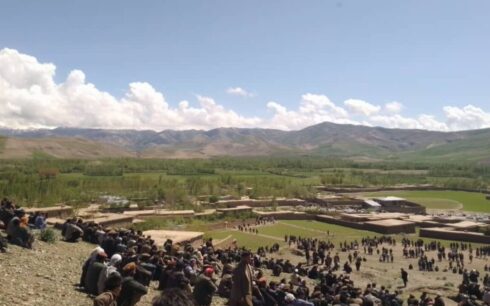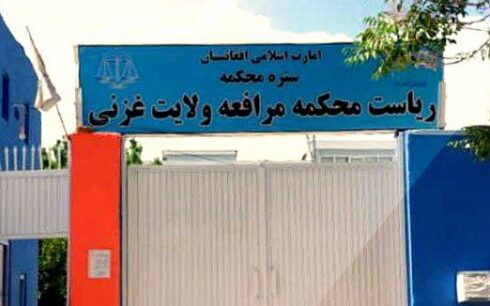Taliban said on Wednesday that it has hosted a meeting of “religious scholars” and “tribal elders” in Kabul.
Taliban spokesman Zabihullah Mujahid said in a social media post that the meeting primarily focused on “improvement” and “further coordination between the people and the system”.
Taliban’s acting minister of higher education, Neda Mohammad Nadim, who addressed the event, called on the participants to share their consultations with their “authorities”.
A 12-article resolution was announced after the meeting but none of its articles mentioned the right to education and work for women and girls.
The meeting that was held at the Loya Jirga hall in Kabul saw the presence of many Taliban officials, including its deputy chief minister Abdul Salam Hanafi, the acting ministers of foreign affairs, interior and higher education.
“Corruption in government offices has been uprooted completely, and all budgets are provided from internal resources,” the Taliban deputy leader Abdul Salam Hanafi said.
Taliban’s acting interior minister Sirajuddin Haqqani stressed the need for more coordination among the people and religious scholars.
“People and the world see us as a destructive and rift-oriented situation today, but tomorrow, they will see us as a benefit to the system,” he said.
The resolution issued at the end of the meeting notes support for the Taliban government, renewal of allegiance to the Taliban leader, job creation programs and interaction with the world.
A number of female students reacting to such meetings said that the Taliban is seeking to legitimize their “false image” of the right to work and education of women and girls in Afghanistan with such events.
“Taliban gatherings in the two years that have been held are only for the benefit of the Taliban, not the will of the general public. They don’t ask the common people what they want, they gather a few like-minded people to legitimize their words that the people of Afghanistan are against work and education of women and girls,” said Anasa, a student.
The Taliban has still not been recognized by a single country, two years after seizing control of Afghanistan.
On a national level, critics of the Taliban have continuously said that the Taliban administration is not inclusive and lacks the presence of women and ethnic and religious minorities in the structure. According to them, the cabinet does not have popular legitimacy.





